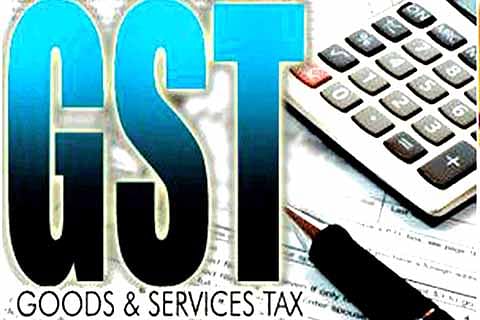With the Goods and Services Tax (GST) completing two years of its implementation across the country on Monday, July 1, trade and business bodies in Kashmir say they expect the BJP-led central government to take a “pro-artisan” stand by excluding Kashmiri handicrafts and tourism from this taxing regime.
While GST was implemented in Jammu and Kashmir a week afterrest of the country after facing resistance from local industry, as perartisans and exporters this tax has hit struggling handicrafts, which they havebeen demanding should be brought under zero tax.
At present both Kashmir handicrafts and tourism attract12-18 percent GST but a Parliamentary Panel Committee had recently expressedconcern over adverse effect of GST on Kashmir tourism and put forthrecommendations to do away with this taxing regime on it.
Senior vice-president, Kashmir Chamber of Commerce andIndustry, Nasir Hamid Khan says the chamber will be taking up the issue ofdoing away with GST with the concerned ministry at the centre soon.
“The Kashmiri shawl and other handicrafts which continue toattract 12-15 percent GST need to have zero percent taxation, which has beenour long pending demand,” said Khan.
Khan said levying GST on handicrafts was uncalled for asthis craft is completely labour intensive. “We hope good sense prevails amongthe centre so that dying Kashmiri handicrafts are revived.”
Kashmir-based economists says GST council meeting thathappens every month must be called immediately by the new government to ensurethat “lacunae in this taxing regime are addressed soon.” Economist Prof NisarAli says the disadvantage of GST is that it has affected traditional craftssuch as Kashmir art.
“Tourism as well as handicrafts is in doldrums due to localfactors and the taxation. The most sensible move will be to bring these bothunder zero tax regime so that we can publicise them as tax free industry,” saidAli.
“Horticulture food processing products such as beverages,jams and jellies which are exported from Kashmir must be kept outside GST. Thiswill provide a boost to them,” said Ali.
“Prior to GST, J&K was only state entitled to levyservice tax but the state usually did not levy it in order not to burdenpeople. But after GST, the taxation such as that on service tax on sectors liketelecom etc is way too much. Consumer products should have become cheaper afterthis tax but it didn’t and have rather become costly,” Ali said.
Kashmir tourism players say this sector should be exemptedfrom GST by the government as suggested by the Parliamentary Panel reportrecently.
“Trade and tourism in Kashmir is in desperate need of astimulus. There should be exemption of GST on tourism as suggested by theParliamentary panel report so that tourism and hospitality business, which hassuffered a lot in the past witnesses a growth,” said Mushtaq Chaya, chairman,PHD Chamber-Kashmir chapter. Chaya said tourism sector, which has been providedindustrial status must be provided major concessions.
“Less inflow of tourists to Kashmir in last few years hashit tourism stakeholders including hoteliers. We want same benefits as are given to new industries,” said Chaya.






